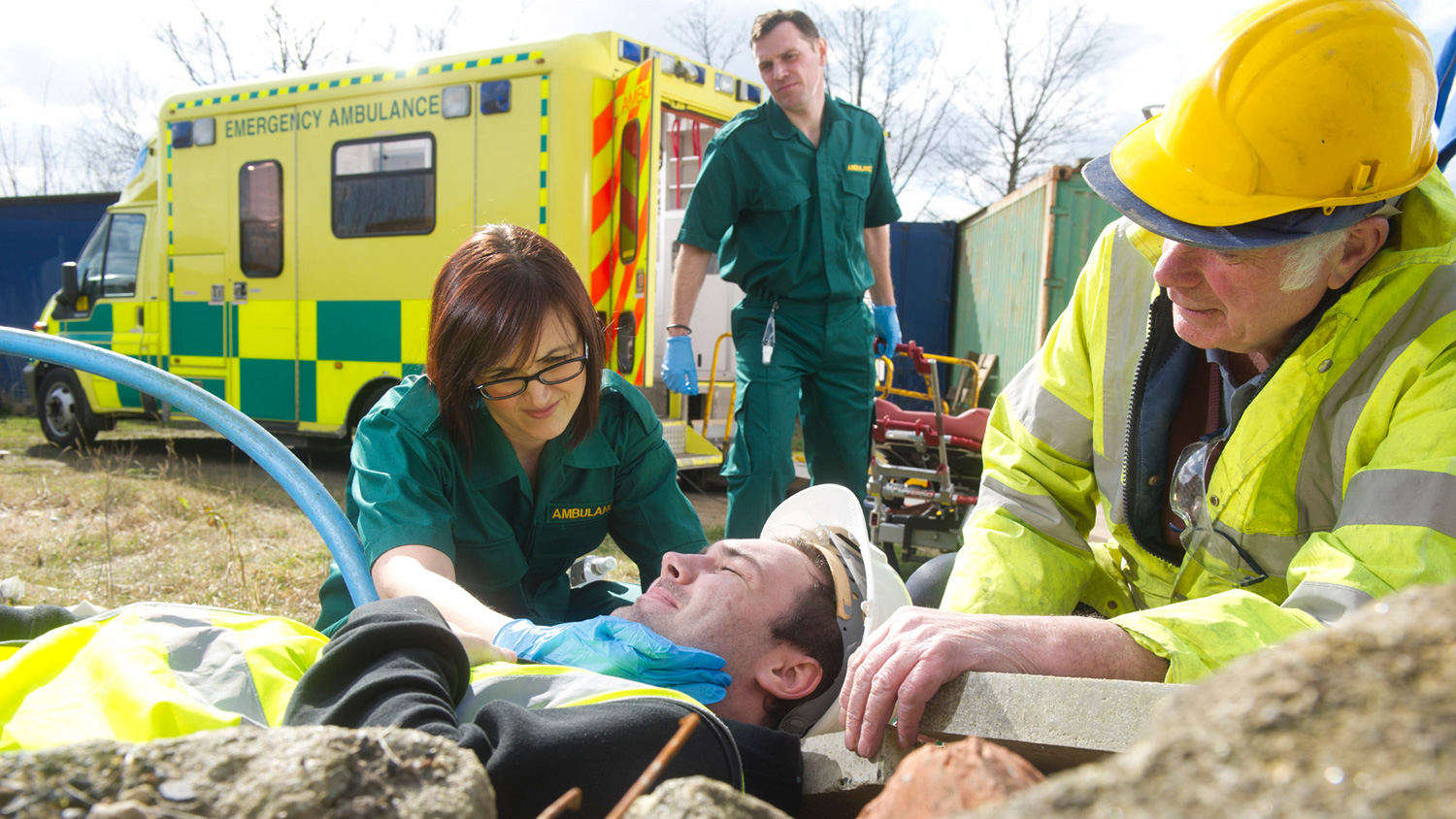
Briefing: IOSH responds to G7 declaration on occupational safety and health
The G7 Labour and Employment Ministers, together with Development Ministers, have placed a strong focus on building back better, greener, and more inclusively. They also put the spotlight on structural labour, social and employment issues. Their commitment includes a focus on improved occupational safety and health to cover new risks linked to climate change and policies implemented to mitigate it.
IOSH believes that these public policy high-level public discussions represent a unique opportunity to renew collective efforts and commitment to tackle the devastation caused by occupational accidents and diseases. This briefing looks at the issues.
According to the International Labour Organization, each year nearly three million workers die because of occupational accidents and diseases, with hundreds of millions suffering non-fatal injuries at work.
Ahead of the upcoming G7 Summit in June 2022, we urge on the need for consistent action at all levels if we want to create safe and healthy workplaces. This means governments prioritising workers’ health and safety in national agendas and investing in capacity building to prevent occupational accidents, injuries and diseases and protection of workers’ welfare.
IOSH believes there are eight key measures needed to ensure this commitment is turned into action.
1. The recognition of safe and healthy working conditions and a safe and healthy working environment in the ILO’s framework of fundamental principles and rights at work
In this changing world of work, fundamental labour rights, including occupational safety and health, can lead to decent working conditions, safer and healthier work and workplaces and support the achievement of the United Nations’ Sustainable Development Goals (SDGs) to which the world has committed.
At a time when the ongoing universal post COVID-19 recovery effort has highlighted the importance of strengthening the coherence between human rights and OSH standards, IOSH advocates for safe and healthy working conditions to be recognised as a fundamental right at work. By strengthening the coherence between human rights and workplace safety and health, occupational safety and health can become a fundamental principle and right at work, acting as a positive lever in the public policy agenda-setting, and ultimately contribute to the global transition to socially and environmentally sustainable economies.
2. Socially responsible trade and sustainable and social supply chains
IOSH advocates that when occupational safety and health provisions are firmly integrated into general trade and development strategies, they can become a critical part in the process of achieving socially responsible trade. We are also conscious that this process towards sustainable development will only succeed if key players engage in safer, healthier and more sustainable trade strategies by elevating occupational safety and health standards as part of worker-centred trade policy and agreements. G7 partners can also be instrumental in promoting the adoption of international instruments – such as international labour standards, World Trade Organisation rules, international environmental laws, International Financial Reporting Standards, UN Guiding Principles on Business & Human Rights, and so on – that are often used to improve compliance practices for business behaviour.
Focuses on protecting workers' rights throughout the supply chain must also be a priority. This is particularly the case for those workers who are normally ‘left behind’ (casual or informal workers, women and young workers, migrant workers and so on) and who are at the bottom of the supply chain lacking occupational safety and health protections. Tailored initiatives that look at improving occupational safety and health in global supply chains down to the lowest tier of suppliers, such as the ILO Vision Zero Fund, have a tremendous potential to be a 'game changer’ by addressing safety and health challenges in global supply chains..
3. Climate change due diligence
Climate-related issues can impact business operations, supply chains, workers, communities, and wider society. Strengthening the duty for companies to tackle climate-related risks in their value chains will be a pivotal element in achieving socially and environmentally responsible business. As the environment changes and degrades, and despite efforts to ensure environmental sustainability, this will inevitably have consequences and might generate obligations for businesses. This is why discussions and commitments on climate-related threats, climate change adaptation strategies, better anticipation, evaluation, and control strategies of occupational hazards, risks and opportunities need to be prioritised in the global public policy agenda.
4. Key workers and essential services
Learnings from the COVID-19 pandemic have taught us about the need to do things better. We call on the G7 to be more proactive to cater for the occupational safety and health needs and quality of work of essential workers. This would require adopting more targeted and tailored approaches to better understand the complexities that frontline workers might struggle with and to support their health, safety and wellbeing as part of a business’s normal management. It would also involve preparation for future emergencies to which this group of workers will need to respond. Succeeding in doing so seems to be a win-win situation. It would be beneficial not just for this segment of the workforce, but to the public good and the wider society.
5. Social sustainability and human capital
The G7’s firm commitment to the creation of decent work for a green economy, as highlighted in the Ministerial Declaration, can contribute to driving social sustainability forward, prioritising people as well as planet and profit to secure long-term prosperity. This is consistent with the growing momentum worldwide, led by governments, investors, companies, civil society and social partners, toward encouraging businesses to ensure they are adopting a person-centred approach to everything they do, treating employees as an asset, protecting them, and creating the conditions to promote decent work.
6. Mandatory human rights due diligence
IOSH welcomes the Ministers’ commitment towards a harmonised agreement on business and human rights that would set a strong emphasis on mandatory corporate human rights due diligence laws, corporate accountability and the need for increased efforts on corporate transparency around ‘ESG’ and human rights. IOSH expects legislative developments on this matter to put the social elements of human rights in ESG due diligence (modern slavery, corporate social responsibility, occupational safety and health, decent working conditions, supply chain sustainability) at the very top.
7. Combating modern slavery, child labour and forced labour
IOSH urges the G7 Labour and Employment Ministers to tackle these abhorrent forms of work that deny workers their access to decent and dignified work. This is of critical importance to revitalise and reinvigorate the G7 commitment to Sustainable Development Goal Target 8.7, which focuses on the elimination of child labour in all its forms by 2025 and the eradication of forced labour, modern slavery and human trafficking by 2030.
8. Workplace mental health and wellbeing
While there’s been recognition that the pandemic has impacted not only physical health but also the mental health and social wellbeing of workers – particularly for young workers, older workers, female workers, frontline workers and workers from vulnerable disadvantaged groups – mental health is not yet at the top of the policy agenda. This will require strategies for supporting the development, promotion and implementation of mental health in workplace policies, practices, tools, and awareness programmes.
To advance with this agenda, and to move towards policy coherence and consensus, developments such as the Roadmap towards Safe and Healthy Work in a Green Economy and the need to improve occupational safety and health to adapt to emerging risks from climate change and environmental degradation are positively received. But this agenda shouldn’t stop here. In all humility, we ask G7, B7 and L7 leaders to elevate occupational safety and health as a fundamental right of every worker and a foundation of sustainable development and decent work.
The Group of Seven (G7) is an informal forum of seven leading industrial nations and democracies, which includes Germany, the United Kingdom, Canada, Italy, Japan and the United States of America and the European Union. The Labour7 group (L7) and the Business7 group (B7) are the G7 platforms for dialogue with organisations that represent the interests of workers and employees and look for developing concrete and actionable recommendations affecting the world of work and the welfare of workers.







